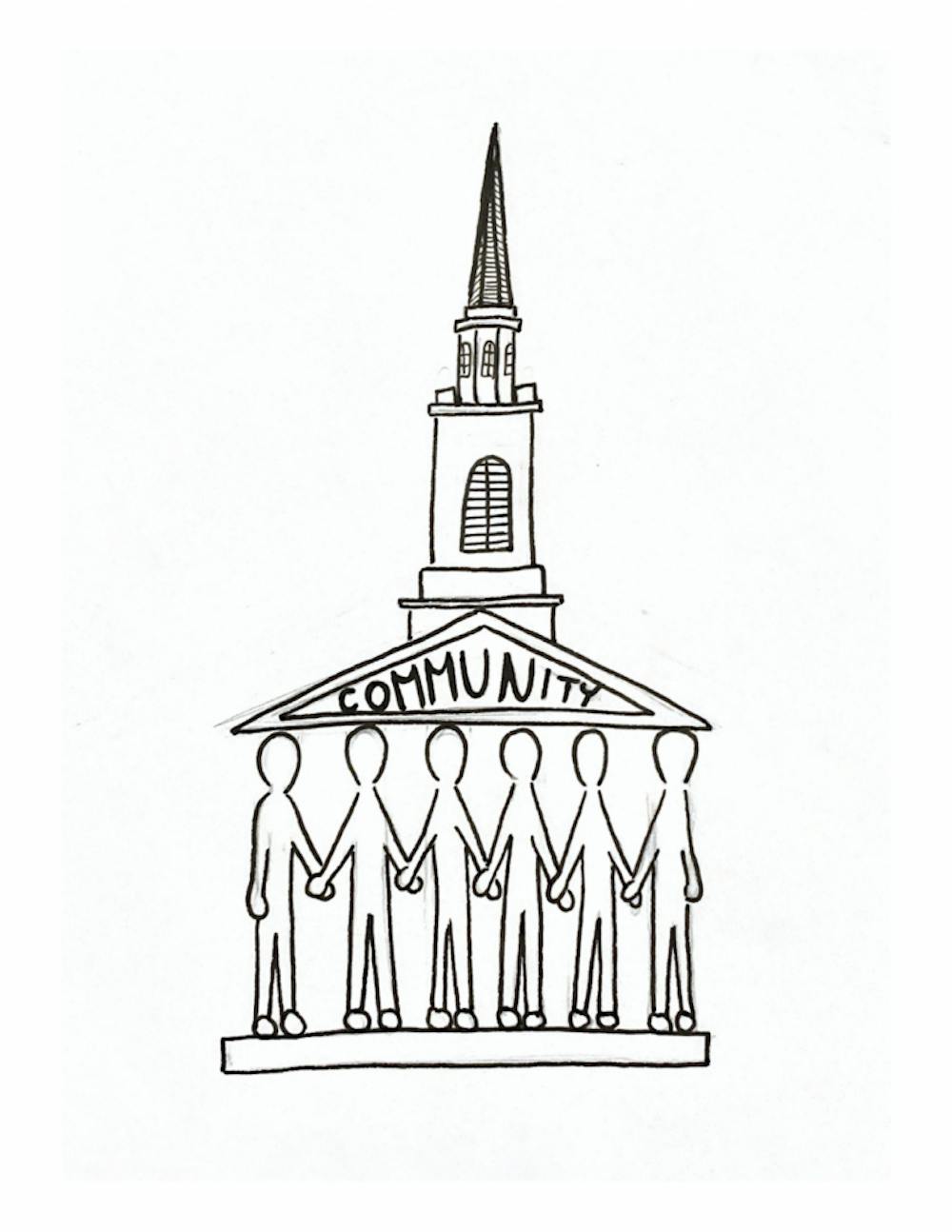It’s taken a pandemic for me to feel it, but real community can happen at Middlebury.
On the morning of Tuesday March 10, life suddenly shifted. The only certainty anyone had was that of the immense change we were about to experience, and we quickly found ourselves in crisis.
Yet we have been in crisis at Middlebury for a while — one that has led to deep divides within the bodies that make up Middlebury, and between these bodies and the college administration. I was once the co-chair of the Community Council. Tragically, within my role as representative of the college community, I did not feel any sense of community at Middlebury. On the eve of what would have been Charles Murray’s third controversial visit to campus, divides had started to feel like a permanent reality I had to come to terms with, rather than something that could ever reach resolution.
That changed last week. Over the past several days, I have witnessed something I haven’t seen before at Middlebury, and for the first time, I am not hesitating to call it community.
That same Tuesday morning, a group of students created the Middlebury Mutual Aid Spreadsheet, and people near and far readily offered their homes, time and energy toward helping others. The spreadsheet is wonderful, tangible proof of how there we were for each other in a period of panic. Less tangible but just as real as the spreadsheet are the interpersonal interactions which happened in the face of our shared uncertainty: we acknowledged each other as vulnerable, scared human beings.
We checked in with each other, concerned about the wellbeing of those we’d perhaps only spoken to a handful of times before. Many professors sent out empathetic and reassuring emails to students, and classrooms became spaces in which we acknowledged our shared uncertainties. Students and staff expressed mutual concern for each other. We came together and spent time together, alleviating the feelings we often experience in times of struggle of being alone in hardship. Tuesday’s news could have been an opportunity for us all to revert inwards and focus only on ourselves. We did not let it become that.
[pullquote speaker="Lynn Travnikova" photo="" align="center" background="on" border="all" shadow="on"]Tuesday’s news could have been an opportunity for us all to revert inwards and focus only on ourselves. We did not let it become that.[/pullquote]
There are three things I have observed about what it takes to create community that this week has made clear.
First, community is not and cannot be top-down, created by administrators and assumed by all of us — community begins and ends with every single person taking part in it however they can. It involves breaking down the arbitrary barriers that restrict the ways in which we interact and empathize with each other as human beings – letting cliques within the student body and distinctions like“student,” “staff,” and “faculty” dictate the level of humanity we are willing to extend to each other only chokes community. We broke down these barriers last week when we each stepped up. One of my professors emailed my class shortly after we all received the news, offering a ride or a home-cooked meal to anyone who could use one. People posted in the Middlebury Free & For Sale Facebook group offering free seats in their cars on their journeys home and bus tickets at whatever prices people could afford. Staff friends in the dining halls and the mailroom checked in with me to ask about my plans, and I saw other students having similar conversations with staff members asking about how they would be impacted by the imminent changes. These are examples of how people do their part in contributing to community which grows from the roots up.
Second, community consists of individuals recognizing when they are in positions to give, and then giving. A friend of mine pointed out how starkly the coronavirus situation has highlighted levels of privilege on our campus: Whose immune system is strong enough to risk returning to a city with prevalent cases of coronavirus? Who has a car to drive home? Who has the funds to afford a flight home? Who even has a home to go back to? All of us are fortunate in ways that others are not. Community requires the acknowledgement of our individual good fortune to support those who are struggling with something that we can then help with. In this way, we all support each other, and we all win. We gain so much more than we could ever lose when we give. We gain human connection, which has become so valuable right now. We gain a sense of our own humanity from helping those in need. We feel connected to something larger than ourselves.
Lastly, community requires maintenance, and it is on all of us to maintain it. Community has sprung forth this week, but will it survive when we eventually return to campus? We’ve become more empathetic towards each other in the mutual acknowledgement that nobody is having an easy time right now. But why aren’t we always more forgiving with each other? Why don’t we look each other in the eyes and smile more as we walk past each other, even if we are strangers? At its core, community at Middlebury requires an acknowledgement of our shared humanity. This becomes easy when we are all so vulnerable, and I hope we find the strength and love to continue doing so when normalcy returns to our campus. We’re here together. We experience Middlebury very differently and separately, but we do so together.
Perhaps some of our divides cannot or will not ever be resolved. Regardless, I write this because what happened on our campus last week is worth commemorating. It is emblematic of community, and the potential we all have to transform Middlebury.
Lynn Travnikova is a member of the class of 2020.5 and former co-chair of the Community Council.
On crisis and community

Comments

